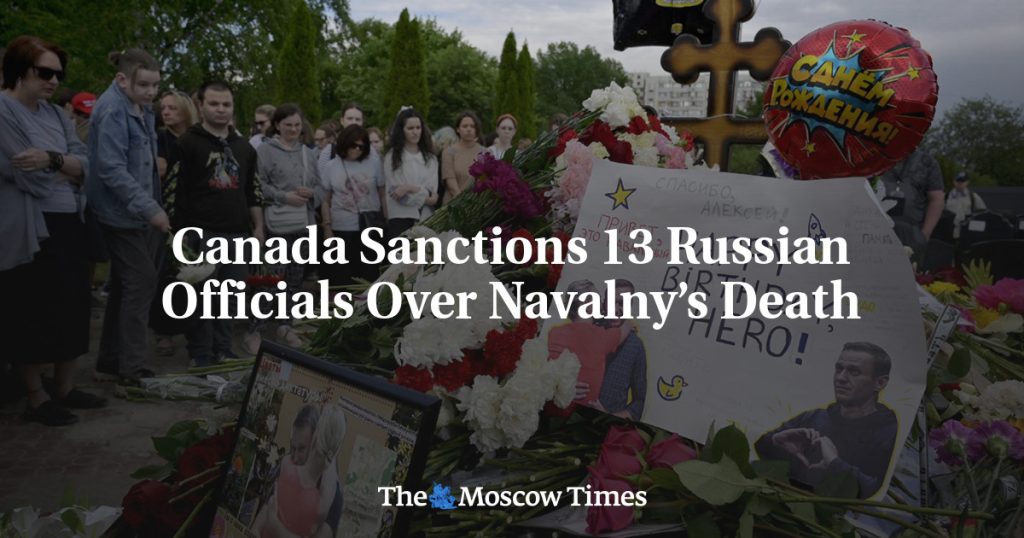Canada has implemented sanctions against over a dozen Russian law enforcement officials believed to be responsible for the death of opposition activist Alexei Navalny. The sanctions target individuals involved in the poisoning of Navalny in 2020, his arrest upon returning to Russia in 2021, and his mistreatment while incarcerated. Foreign Minister Melanie Joly stated that these sanctions aim to demonstrate a strong front against the Kremlin’s violations of human rights and suppression of Russian civil society and political opposition.
While the specific names of the targeted individuals were not provided in the announcement, Canada’s sanctions registry on Russia lists 13 additional names. This move comes after Ottawa previously announced sanctions against six Russian officials following Navalny’s death in February while serving a sentence in an Arctic penal colony for extremism. The death of Navalny sparked international condemnation, with several countries taking action through sanctions against those responsible.
In addition to Canada, the United States, Britain, Australia, and the European Union have also introduced sanctions in response to Navalny’s death. Supporters of the late activist claim that his death was organized by the Kremlin, leading to increased pressure on Russia from the international community. The implementation of sanctions is seen as a way to hold accountable those involved in Navalny’s poisoning, arrest, and mistreatment, as well as to send a message condemning the violations of human rights committed by the Russian government.
The sanctions imposed by Canada are part of a broader effort to address the ongoing human rights abuses and suppression of political opposition in Russia. By targeting high-ranking Russian law enforcement officials, Canada is sending a clear message that the violations committed against Navalny and others will not go unpunished. The coordinated action taken by multiple countries reflects a unified stance against the Kremlin’s actions and demonstrates international solidarity in response to human rights violations.
Despite the sanctions and international pressure, the Russian government has denied any involvement in Navalny’s poisoning and subsequent mistreatment. Moscow has dismissed the accusations as baseless and has pushed back against the sanctions imposed by various countries. The situation has led to increased tensions between Russia and Western nations, with diplomatic relations strained over the handling of Navalny’s case and broader human rights issues in Russia.
Moving forward, it is likely that more coordinated efforts will be made by the international community to hold Russia accountable for its human rights violations and suppression of political opposition. The implementation of sanctions is just one step in a larger strategy to address these issues and bring about meaningful change in Russia. As the situation continues to develop, it is essential for countries to work together to ensure that those responsible for human rights abuses are held accountable and that efforts to promote democracy and respect for human rights in Russia are supported and strengthened.


